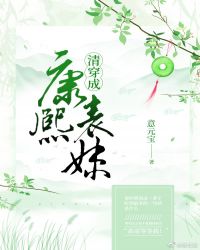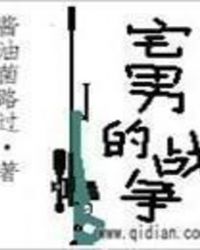LETTER 256
您可以在百度里搜索“The Works of Charles and Mary Lamb — Volume 5 艾草文学(www.321553.xyz)”查找最新章节!
LETTER 256
CHARLES LAMB TO DOROTHY WORDSWORTH
[P.M. 25 Nov., 1819.]
Dear Miss Wordsworth, you will think me negligent, but I wanted to see more of Willy, before I ventured to express a prediction. Till yesterday I had barely seen him—Virgilium Tantum Vidi—but yesterday he gave us his small company to a bullock's heart—and I can pronounce him a lad of promise. He is no pedant nor bookworm, so far I can answer. Perhaps he has hitherto paid too little attention to other men's inventions, preferring, like Lord Foppington, the "natural sprouts of his own." But he has observation, and seems thoroughly awake. I am ill at remembering other people's bon mots, but the following are a few. Being taken over Waterloo Bridge, he remarked that if we had no mountains, we had a fine river at least, which was a Touch of the Comparative, but then he added, in a strain which augured less for his future abilities as a Political Economist, that he supposed they must take at least a pound a week Toll. Like a curious naturalist he inquired if the tide did not come up a little salty. This being satisfactorily answered, he put another question as to the flux and reflux, which being rather cunningly evaded than artfully solved by that she-Aristotle Mary, who muttered something about its getting up an hour sooner and sooner every day, he sagely replied, "Then it must come to the same thing at last" which was a speech worthy of an infant Halley! The Lion in the 'Change by no means came up to his ideal standard. So impossible it is for Nature in any of her works to come up to the standard of a child's imagination. The whelps (Lionets) he was sorry to find were dead, and on particular enquiry his old friend the Ouran Outang had gone the way of all flesh also. The grand Tiger was also sick, and expected in no short time to exchange this transitory world for another—or none. But again, there was a Golden Eagle (I do not mean that of Charing) which did much ARRIDE and console him. William's genius, I take it, leans a little to the figurative, for being at play at Tricktrack (a kind of minor Billiard-table which we keep for smaller wights, and sometimes refresh our own mature fatigues with taking a hand at), not being able to hit a ball he had iterate aimed at, he cried out, "I cannot hit that beast." Now the balls are usually called men, but he felicitously hit upon a middle term, a term of approximation and imaginative reconciliation, a something where the two ends, of the brute matter (ivory) and their human and rather violent personification into men, might meet, as I take it, illustrative of that Excellent remark in a certain Preface about Imagination, explaining "like a sea-beast that had crawled forth to sun himself." Not that I accuse William Minor of hereditary plagiary, or conceive the image to have come ex traduce. Rather he seemeth to keep aloof from any source of imitation, and purposely to remain ignorant of what mighty poets have done in this kind before him. For being asked if his father had ever been on Westminster Bridge, he answer'd that he did not know.
It is hard to discern the Oak in the Acorn, or a Temple like St. Paul's in the first stone which is laid, nor can I quite prefigure what destination the genius of William Minor hath to take. Some few hints I have set down, to guide my future observations. He hath the power of calculation in no ordinary degree for a chit. He combineth figures, after the first boggle, rapidly. As in the Tricktrack board, where the hits are figured, at first he did not perceive that 15 and 7 made 22, but by a little use he could combine 8 with 25—and 33 again with 16, which approacheth something in kind (far let me be from flattering him by saying in degree) to that of the famous American boy. I am sometimes inclined to think I perceive the future satirist in him, for he hath a sub-sardonic smile which bursteth out upon occasion, as when he was asked if London were as big as Ambleside, and indeed no other answer was given, or proper to be given, to so ensnaring and provoking a question. In the contour of scull certainly I discern something paternal. But whether in all respects the future man shall transcend his father's fame, Time the trier of geniuses must decide. Be it pronounced peremptorily at present, that Willy is a well-mannerd child, and though no great student, hath yet a lively eye for things that lie before him. Given in haste from my desk at Leadenhall. Your's and yours' most sincerely
C. LAMB.
[This letter, which refers to a visit paid to the Lambs in Great Russell Street by Wordsworth's son, William, then nine years old, is remarkable, apart from its charm and humour, for containing more of the absolute method of certain of Lamb's Elia passages than anything he had yet written.
"Lord Foppington"—in Vanbrugh's "Relapse." Lamb used this speech as the motto of his Elia essay "Detached Thoughts on Books and Reading."
"Like a sea-beast." Lamb alludes to the preface to the edition of 1815 of Wordsworth's poems, where he "es illustratively from his "Resolution and Independence":—
Like a sea-beast crawled forth, that on a shelf
Of rock or sand reposeth, there to sun itself.
"If his father had ever been on Westminster Bridge." An allusion to
Wordsworth's sonnet "Composed on Westminster Bridge":—
Earth has not anything to show more fair.
"The American boy." This was Zerah Colburn, the mathematical prodigy, born in Vermont State in 1804 and exhibited in America and Europe by his father.] The Works of Charles and Mary Lamb — Volume 5




